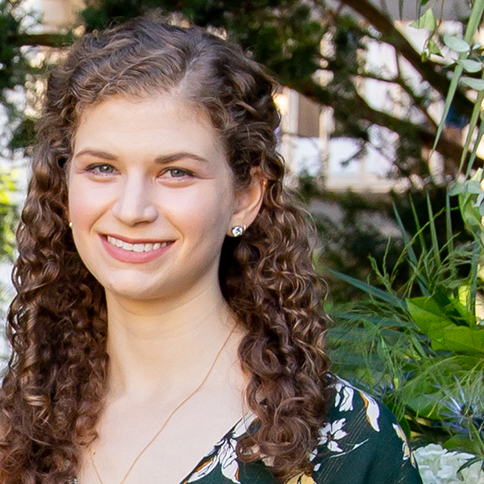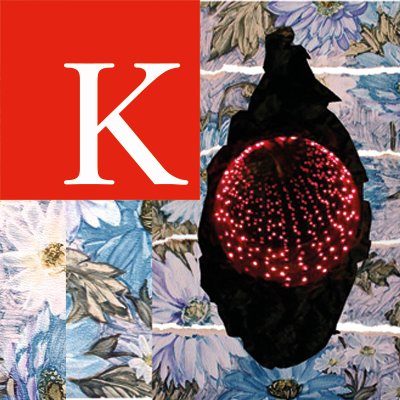On Wednesday 3rd March, the Arts and Humanities Alumni Panel saw four panelists gather to discuss the growing variety of routes into different creative careers. Danielle Green, the Associate Director of Annual Giving for NYU Stern School of Business was one member of this panel discussion.

Danielle Green is a fundraising and marketing professional who undertook CMCI’s MA Cultural & Creative Industries course between 2013-2014.
Interview
Firstly, why did you choose to study the MA Cultural & Creative Industries course? And why at the CMCI Department at King’s College?
From an early age I was always involved in music, theatre, and dance. I started playing the flute at age 8 and quickly discovered that my passion for the arts was more than just a hobby. My undergraduate degree was in flute performance and music education, but ultimately teaching and performance were not quite the right paths for me. I started to look for opportunities in arts administration, and for a couple of years I worked with a few smaller arts organisations in New York, trying various functions (public relations, artistic programme management, communications) to figure out what appealed to me the most.
In my undergrad I spent a term at King’s College studying in the music and history departments. That semester was transformative, challenging me academically and introducing me to other King’s students who are now some of my closest lifelong friends. After those few months I knew I wanted to return to London at some point.
I was drawn to the MA Cultural & Creative Industries course in particular because I found the focus on cultural policy and the history behind it really interesting and different to arts administration courses in the US. Until that point my work experience had been primarily in classical music, so I was keen to expand my knowledge to other areas of arts and culture. CMCI’s variety of modules allowed me to branch out and learn about other areas like museums, digital media, cultural and creative work, and more. London’s arts and cultural sector is unparalleled (although growing up near New York I can “objectively” say it’s neck-and-neck), so I was excited for the opportunity to study and work there.
Since completing your MA you have had an impressive number of high-profile roles inclusive of Membership Manager at Jazz at Lincoln Center, Marketing Manager for New Jersey Symphony Orchestra, and most recently Associate Director of Annual Giving at NYU Stern School of Business. Can you tell me more about how you came to enter the field of higher education? And if/how the MA Cultural & Creative Industries course helped to prepare you for this role?
Most of my career has been in the arts and cultural sector, with eight years working in fundraising and marketing across both the arts and higher education. The MA Cultural & Creative Industries course provided both a strong academic foundation and fruitful connections. I honed my writing and critical thinking skills tremendously, which has prepared me for the strategic and written communication aspects of all of my roles. The course also connected me to organisations such as the Royal Shakespeare Company, Clore Leadership, the King’s Cultural Institute, and others to interview for my dissertation, which focused on the role of internships as entry to creative work. Undertaking an original research project of that scope was daunting, but it gave me the skills and confidence to take on future projects such as large grant applications and restructuring membership schemes. The other defining aspect of the course was completing the internship module with Spitalfields Music in east London. This practical work experience complemented and balanced MA CCI’s broader theoretical coursework – plus the internship quickly turned into a paid role!
My first exposure to the field of higher education was actually in undergrad when I led prospective student interviews for my university’s admissions office. I learned about students’ life stories, motivations, and aspirations in these conversations; and I do believe they motivated me to seek a career that involved building relationships, an essential skill in fundraising. After a few years in the arts, I chose to try a role in the higher education sector to broaden my fundraising perspective and skill set. Fundraising in higher education is considered to employ some of the industry’s best practices, and I have deepened my knowledge of individual giving considerably. It is meaningful and fulfilling that my work provides bursaries/scholarships for students to pursue a university education, especially considering how pivotal the MA CCI experience was for me.
Were there any other benefits to your time on the MA course, or at King’s more generally?
The King’s global alumni network has been a valuable part of the MA CCI course. After my UK visa expired, I returned to the US to work with the New Jersey Symphony Orchestra (NJSO) in their marketing team. Shortly after that, one of my MA CCI coursemates also joined the organisation in the artistic planning team. In fact, at one point there were actually three of us working for the NJSO’s administration at the same time!
I also joined the King’s New York Alumni Group and was surprised to learn how many other MA CCI alumni were based in New York too! I started to get more involved by helping to plan cultural outings for the group and eventually joined King’s NY Alumni Committee. It has been rewarding to collaborate with my fellow committee members on events (both in-person and virtual) and contribute to the NY-based alumni community.
Could you describe one of your typical workdays?
Naturally, a typical day working remotely in the past year has been quite different to a typical day before the pandemic. Usually my day begins with responding to any donor inquiries and liaising with any external partners such as graphic designers or mailing houses. Fundraising is cyclical, so after those initial emails my daily tasks will vary depending on the time of year and the project I happen to be managing at the time. One aspect I enjoy most about my job is that it requires me to tap into a range of skills, from the creative to the analytical and technical. Some days might include brainstorming project strategy, planning timelines for a campaign, and writing copy for donor materials. Other days I might be evaluating reports or setting up email marketing data logic. I usually also have several meetings/calls with donors, my team, or another department in the School to learn about student programmes and initiatives.
Prior to the pandemic, my work also included planning and attending in-person events for donors and audiences – I really enjoy this aspect of my job so I’m looking forward to the day when we can gather in person for events again soon!
If you could give any advice to students currently enrolled on MA Cultural & Creative Industries course, but with aspirations to establish a career in higher education, what would it be?
There is a lot of crossover between the cultural and higher education sectors, so the MA Cultural & Creative Industries course is a useful stepping stone to a career in HEI. For students with aspirations to work in HEI, I would suggest seeking paid or volunteer experience at King’s (or even another university if possible), but any experience working in arts education programme management, marketing, fundraising, or other administrative functions would be highly transferable and immensely valuable.
Conversely, I would encourage MA CCI students who haven’t necessarily considered a career in higher education to explore that space as well. Universities often have museums, cultural institutes, venues, and/or performance event series, so there are ample opportunities to work in the arts under the umbrella of higher education.
Finally, I would suggest talking to faculty in leadership roles and administrative staff at King’s to ask them how they entered the field of higher education. As a student already in the university setting, take advantage of this time to set up informal interviews, gain valuable insight, and build your network.
